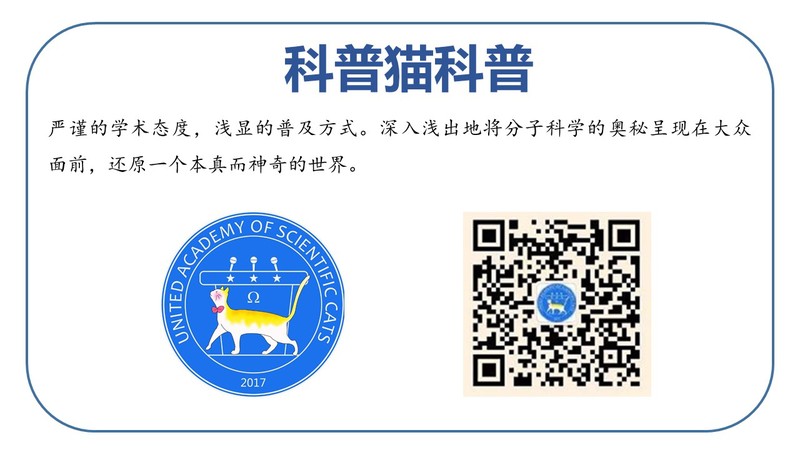培根的美味让无数人迷恋。可一项研究发现,与那些很少食用加工过的肉的女性相比,食用高加工过的肉的女性患癌症的风险增加了9%。
关键词:科普;致癌;译文; Credit: Shutterstock

It's a debate that plays out in everyone's head during a weekend brunch: Should I be eating this much bacon? Researchers have been diving into the question, too, specifically as it relates to cancer.
在周末早午餐时,每个人的脑海中都会出现这样一个争论:我应该吃这么多培根吗?研究人员也在深入研究这个问题,特别是因为它与癌症有关。
The question once again jumped to the forefront of people's minds with the recent release of a meta-analysis that concluded that bacon and several other types of meat are tied to an increased risk of breast cancer.
最近发布的一项meta分析得出的结论是,培根和其他几种肉类会增加患乳腺癌的风险,这个问题再次成为人们关注的焦点。
The research, published in September in the International Journal of Cancer Research, looked at 15 previous studies, including a total of more than1.2 million women, focused on the link between breast cancer and processed meat. The researchers found that individuals who consumed the most processed meat - between 0.9 ounces and 1 ounce (25 and 30 grams) a day - had about a 9 percent higher risk of breast cancer compared with those who ate the least processed meat, which was 0 to 0.07 ounces or 0.17 ounces (2 to 5 grams) a day.
该研究发表在9月份的《国际癌症研究》杂志上,研究了之前的15项研究,其中包括超过120万名女性,重点关注乳腺癌与加工肉类之间的联系。研究人员发现,食用加工过程最多的肉类 - 每天介于0.9盎司和1盎司(25至30克)之间的人,患乳腺癌的风险比那些食用加工最少的肉类,每天0.07盎司或0.17盎司(2至5克)的人高出约9%。
Not every paper looking into this relationship has come to the same conclusion, however: A World Health Organization-affiliated study from 2015, for example, did not, though it did decide these foods increased the risk of colorectal cancer. If there are inconsistencies, what, then, should bacon lovers take away from the piles of papers that are published?
然而,并不是每一篇研究这种关系的论文都得出了相同的结论:例如,2015年世界卫生组织的一项相关研究没有得出同样的结论,尽管它确实认为这些食物增加了结直肠癌的风险。如果存在矛盾,那么,培根爱好者应该从成堆的已发表的论文中拿走什么呢?
Dr. Marji McCullough, a senior scientific director of epidemiology research at the American Cancer Society, noted that breast cancer is a common disease in women, and that salamis, hot dogs and other processed meats are popular food choices. Together, those factors mean the risk the food poses, even if small, is worth paying attention to, especially since an earlier meta-analysis on the topic that has reached similar conclusions.
美国癌症协会流行病学研究高级科学主任Marji McCullough博士指出,乳腺癌是女性常见的疾病,萨拉米肉肠,热狗和其他加工肉类是受欢迎的食物选择。总之,这些因素意味着食物带来的风险,即使很小,也值得关注,尤其是在此前一项关于这个话题的meta分析得出类似结论之后。
Limitations to keep in mind
要记住的局限性

Still, it's important to know that there are limitations to the type of research that aims to link certain foods to the risk of health conditions. In this case, the research available to study meant that the authors could only assess the impact of high- and low-processed meat consumption - there wasn't enough data available to see what risks consumers run when they eat 0.35 ounces to 0.5 ounces (10 or 15 grams) of the product. What's more, the studies included in the meta-analysis relied on participants remembering what their diet had been like at certain points in the past. This research technique that depends on memories has a lot of room for under- and overestimation, said Andrew Milkowski, a meat science researcher and an adjunct professor of animal sciences at the University of Wisconsin-Madison who was not involved with the new report. (Before joining the University of Wisconsin in 2006, Milkowski worked for Oscar Mayer.)
尽管如此,重要的是要知道,旨在将某些食物与健康状况风险联系起来的研究类型是有局限性的。在这种情况下,可用于研究的研究意味着作者只能评估高加工和低加工肉类消费的影响 - 没有足够的数据来了解当消费者食用0.35盎司到0.5盎司(10或15克)的产品时会有什么风险。更重要的是,纳入meta分析的研究依赖于参与者回忆他们过去某些时候的饮食习惯。威斯康星大学麦迪逊分校的肉类科学研究员兼动物科学兼职教授Andrew Milkowski表示,这种依赖于记忆的研究技术有很大的不足和高估的空间,他没有参与新报告。(在2006年加入威斯康星大学之前,Milkowski曾在Oscar Mayer工作过。)
But Maryam Farvid, the lead author on the latest project and a researcher at the Harvard T. H. Chan School of Public Health, said her team tried to counteract this last problem by relying only on studies that surveyed women before they received any diagnosis. That method, Farvid told Live Science, means women were less likely to confuse their pre- and post-cancer diets.
但是,这项最新研究的主要作者,哈佛大学T. H. Chan公共卫生学院的研究员Maryam Farvid表示,她的团队试图通过仅依赖于在女性被确诊之前对她们进行调查的研究来解决最后一个问题。 Farvid告诉Live Science,这种方法意味着女性不太可能混淆癌症前和癌症后的饮食。
Ideally, researchers could administer controlled diets to participants before they're diagnosed with anything, and closely watch for changes in their health - though those conditions are extremely difficult to pull off, Milkowski told Live Science. 'If I were smart enough to figure that out, I'd be promoting that type of research - I don't know if it's a solvable problem,' he added.
Milkowski告诉Live Science,理想情况下,研究人员可以在参与者被诊断出患有某种疾病之前,对他们进行饮食控制,并密切注意其健康状况的变化 - 尽管这些情况极难实现。'如果我足够聪明,能弄清楚这一点,我就会推广这种类型的研究 - 我不知道这是否是一个可以解决的问题,'他补充说。
Milkowski also said that the 9 percent increase in risk that this report found could be a statistical error, and is not enough to warrant alarming people - a point that others have made when criticizing the 2015 WHO-associated report, which labeled processed meats as 'likely carcinogens' after finding the food increased colon cancer risk by 18 percent.
Milkowski还表示,该报告发现的风险增加9%可能是一个统计错误,并不足以让人们感到惊恐 - 这是其他人在评论2015年世界卫生组织相关报告时所做的一点,该报告将加工肉类标记为'可能致癌物',在发现会导致结肠癌风险增加了18%后。
But Farvid said that other dietary factors have also been associated with breast cancer risk, such amount of fiber or fruits and vegetables in a person's diet, and may decrease or increase risk of the disease by similar margins, yet there's much less alarm around these findings.
但Farvid说,其他饮食因素也与乳腺癌风险有关,例如在一个人的饮食中摄入如此多的纤维或水果和蔬菜,可能会以相似的幅度降低或增加患病的风险,但对这些发现的警告要少得多。
Small but meaningful
虽小但有意义
Indeed, the small advantages to eating less processed meat could be especially meaningful, seeing as some other breast cancer risk factors are unchangeable, such as whether women have the breast cancer gene or how young they were when they started menstruation, Farvid said. 'You may say it's hard to change your diet,' she said, 'but that at least is modifiable.'
Farvid说,事实上,吃少量加工肉类的小优点可能特别有意义,因为其他一些乳腺癌风险因素是不可改变的,例如女性是否患有乳腺癌基因,或者她们在开始月经时有多年轻。“你可能会说改变饮食很难,”她说,“但这至少是可以改变的。”
Both Farvid and McCullough advise paying attention to how much processed meat you consume, which, as McCullough said, is part of the American Cancer Society's current dietary recommendations for minimizing the risk of cancer.
Farvid和McCullough都建议关注你摄入多少加工肉类,正如McCullough所说,这是美国癌症协会目前为减少癌症风险而提出的饮食建议的一部分。
'Rich in plants and low in red and processed meats is a recommendation similar to other healthy diet patterns,' McCullough told Live Science. As time goes on, researchers will be better equipped to investigate risk factors for subtypes of cancers, she adds, which could provide more details about what snacks, exactly, play a role in our health.
“富含植物,低红肉和加工肉类的建议与其他健康饮食模式相似,”McCullough告诉Live Science。随着时间的推移,研究人员将能够更好地研究癌症亚型的风险因素,她补充说,这可能会提供更多的细节,让人们了解到底什么零食对我们的健康有影响。
(版权说明,转载自;科学猫科普)

